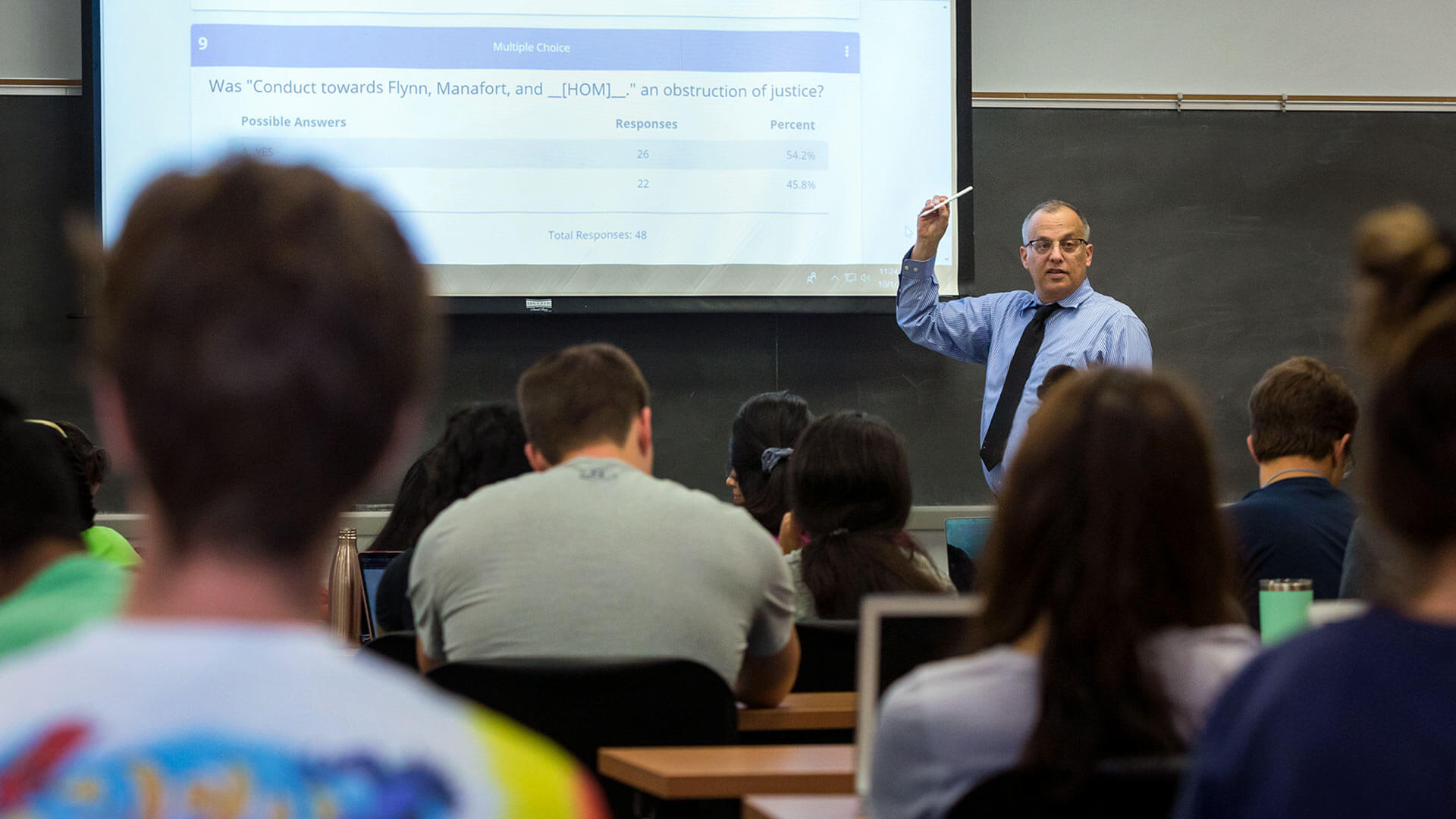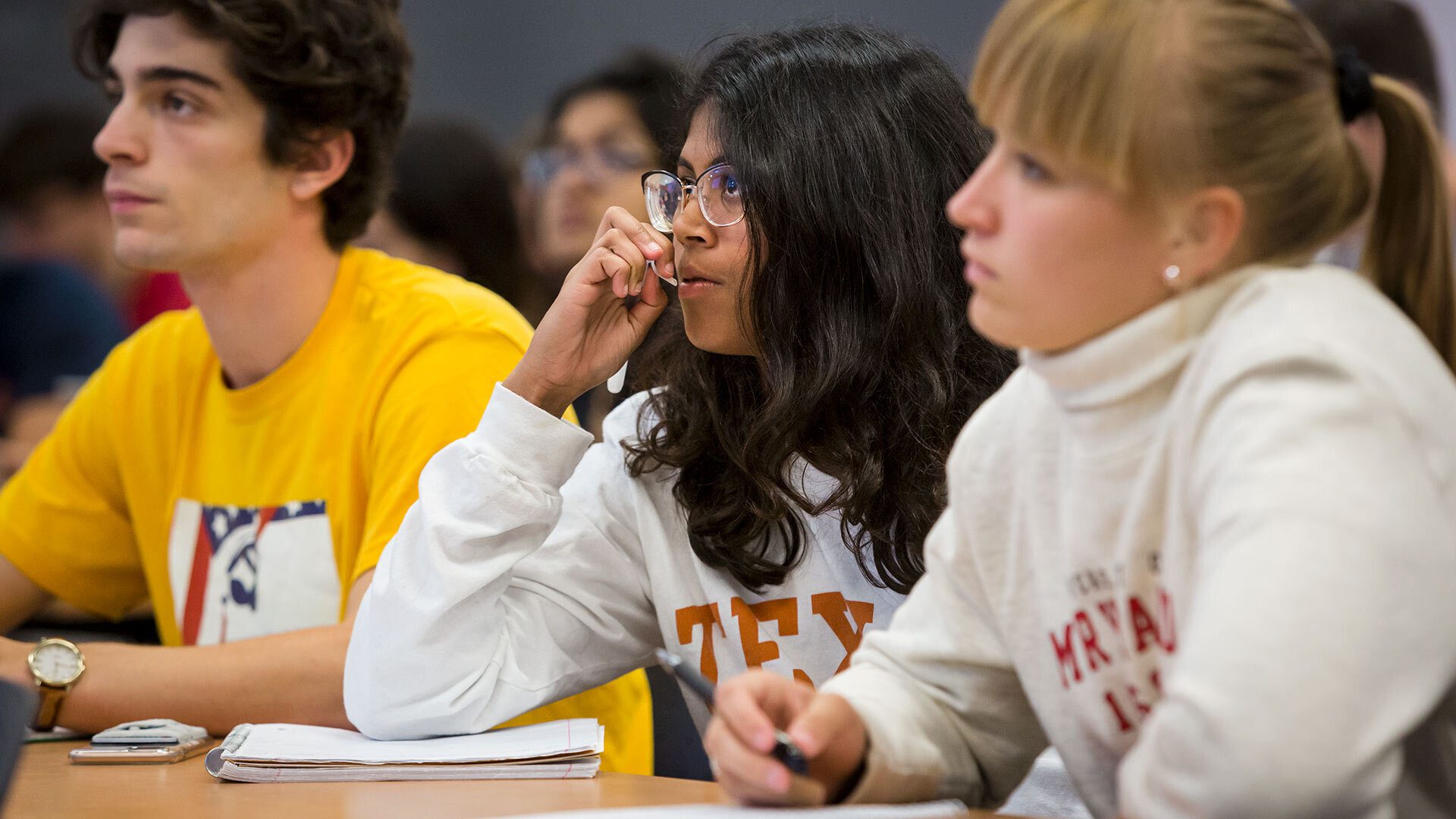- October 03, 2019
- By Liam Farrell
If the dozens of first-year Terps gathered in the Cambridge Community Center on Tuesday had their way, the United States Senate would already be gearing up for the trial of the century.
Using the Mueller report as its guide, freshmen in the College Park Scholars Justice and Legal Thought Program recently dove into the presidential impeachment process and voted on whether the evidence contained in Special Counsel Robert Mueller’s investigation into Russian efforts to influence the 2016 election were grounds for removing President Donald Trump.
The verdict? Majority agreement on eight of 10 articles that Trump and his administration had obstructed justice.
While the exercise had been planned for months, it took on new timeliness as Democrats in the House of Representatives last week began an actual impeachment inquiry into events surrounding a July phone call between Trump and the Ukrainian president.
Beyond giving students a glimpse into how serious an undertaking impeachment is—with only presidents Andrew Johnson and Bill Clinton in that club—the exercise was a way to introduce students to “how law can advance justice and how law can sometimes impede justice,” said Robert Koulish, director of the university’s Justice and Legal Thought and MLaw programs, and the instructor for “Justice and the Law.”
And by having students analyze impeachment with the legal definitions of obstructing justice, Koulish said, "it helped depolarize a highly controversial topic."

The students were put in groups and each given a single issue, such as Trump firing FBI Director James Comey, to either advocate for or against impeachment. They then reported to the full class with ratings on how strong the evidence was and how well intent could actually be proven.
“I had a very basic understanding (of impeachment),” said Yemi Ikotun. “All these technicalities and legalities just make the situation so much more complex.”
While discussing the results, some students said Trump’s general unpopularity with young voters was likely a factor in the convincing votes for impeachment. Others said divorcing politics from legal considerations is ultimately impossible (about half raised their hands to indicate they believe Trump will be impeached in reality; only two believe the Senate will convict).
After digging into the Mueller report, Matt Sorak said it’s no surprise that its complicated details and bland presentation were a hindrance for impeachment inquiry compared to the more recent phone call now under investigation.
“It takes two minutes to go, ‘Wow, that’s terrible’,” he said.
